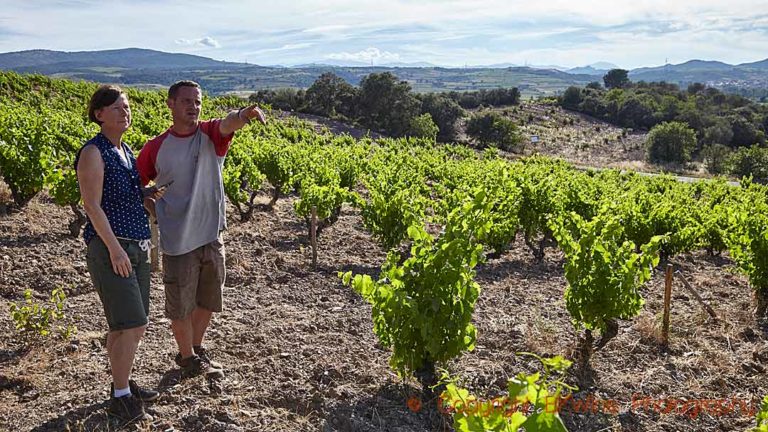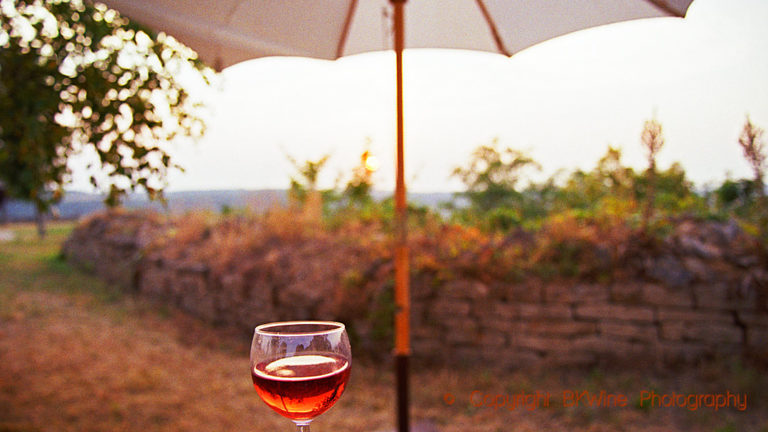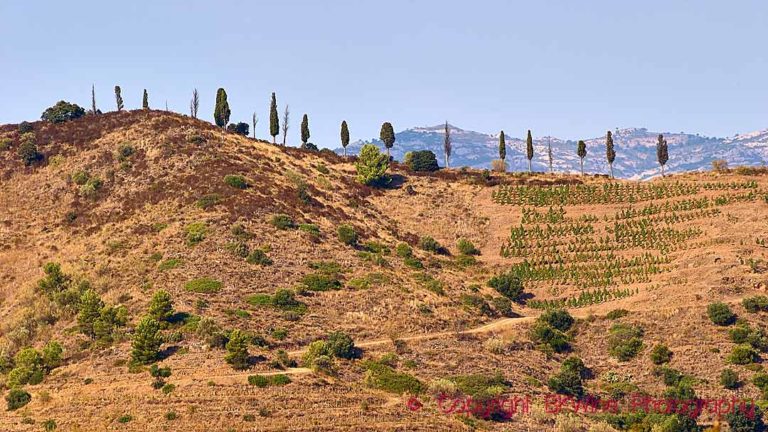 Many people have ageing-mania. The refreshing flavours of a young wine are undervalued. When we taste wine with travellers on our tours, this question always pops up: “How long can I age this wine?”
Many people have ageing-mania. The refreshing flavours of a young wine are undervalued. When we taste wine with travellers on our tours, this question always pops up: “How long can I age this wine?”
Should the wine be judged for its ageing ability or its current character? Does the quality of a wine depend on its ageing potential?
Is it still the case that wines that can be drunk immediately can never be considered great wines?
Many professionals also have this tendency. We once saw a tasting protocol where the wine got extra points if it needed to be aged. A strange logic. It’s not so good now, but will (maybe) be better later, so plus points.
The ageing capacity is admittedly the unique thing about wine, compared to other beverages. Spirits last but don’t improve in bottle. A wine develops, into something better or something worse. Not everyone likes old wines. And most wines do not improve with age.
Instead, they are good to drink fairly promptly. But it is, of course, a matter of taste. And it’s good to have some kind of wine storage at home. Wine is not like freshly squeezed orange juice. If it is in a bottle and of decent quality, it will keep for some years even if it is not considered a wine to age.
But many red wines are so soft and smooth today that people have become sensitive to the slightest hints of tannins and acidity. It’s a shame. It is these two attributes that make the wine such a perfect companion to food.
Many “wine experts” insist on saying that wine – not least champagne – should be drunk in magnum. There we have it again, ageing-mania. The reason for buying wine in magnum is that it is considered to be the optimal size for ageing. The wine is said to develop more slowly in a magnum bottle. Whether it makes any difference to the quality is doubtful.
And by and large, the difference is so small that it is negligible. And even if there really is a difference that we can perceive between bottle and magnum after 20 years, who has decided that the magnum taste is better than the bottle taste?
Much of the wine world is about “that’s always been the case” without there being the slightest evidence of it. “The best temperature for a wine cellar is 12 degrees.” As you have in Champagne. But compare with the same wine that has been stored at different temperatures (without exaggeration of course) for some years. The wines will have developed differently. But who decides which taste is the right one?
Of course, some wines benefit from being aged. Some may even need to be aged, but this is often exaggerated. The origin is probably to be found in the fact that in the past – when everyone who drank wine had 12-degree cellars under their mansion – many wines were unreasonably harsh as young. Because they were not as good at making wine at that time as they are now. That this idea survives probably has a lot to do with the wine world’s gadget focus (“which is the best wine cabinet?”), myth-making (“the 100 wines you have to drink before you die”) and many wine drinkers’ insecurities (“I do not know much about wine so I do not know if this is good”) picked up from old-fashioned wine tasting courses or texts.
A winemaker would say, drink the wine now if you like it. Always trust your own taste.
(Update: This text has an important follow-up: Wine is not just a drink.)
WINE TOURS
This year’s wine tour season is over. It’s been a short season. In a normal year, we have about fifteen wine tours in September and October. This year we had two.
But eventually we will start travelling again. In time, we will triumph over the virus. In a not too distant future, we will be many who are really eager to get out in the vineyards again.
When that time comes, we hope that you will plan a wine tour with us at BKWine, one of world’s most experienced wine tour operator. And one of the most knowledgeable, with for example 10 award-winning wine books on the track record.
We have already planned the spring and fall of 2021 as well as the winter of 2022. Take a look at our program.
Enjoy the Brief!
Britt & Per
This is just the introduction to the latest issue of the Brief. Subscribe to the BKWine Brief and you will get the whole edition in your mailbox next month.
What’s on at BKWine Tours
BKWine is also one of the world’s leading wine tour operators. Here’s what we currently have on our scheduled wine tour program:
- Bordeaux, April 21-25, 2021
- Champagne, May 19-23, 2021
- Champagne, September 22-26, 2021 (possible combination with Bordeaux)
- Bordeaux, September 29 – October 3, 2021 (possible combination with Champagne)
- Chile-Argentina, January 2022
- South Africa, February 2022
- New Zealand, March 2022
We also make custom designed wine tours.
We’re different than most other wine tour operators. We are people who know wine inside out, who travel constantly in wine regions, who write award winning books about wine. Who do this out of passion. Our tours are different from others. More in wine tours: BKWineTours.com.
Read our books
We have written several wine books, ten at the last count. Unfortunately, only one of them has been translated to English; the others are (so far) only available in Swedish. This is the one that is available in English:
All our books are on wine, but on different subjects: wines of the Languedoc, wine growing and wine making, the wines of France, Tuscany, Bordeaux, Piedmont, Burgundy, Champagne. Several have won prestigious prizes and awards from Gourmand International, OIV and others. Read more on our wine books.










